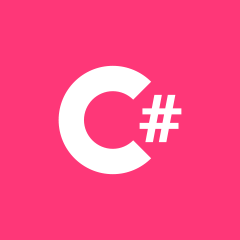如何检查 Unity Inspector 空参数和不正确值的脚本
我试图让我的 Unity 游戏代码尽可能健壮,理想情况下我希望能够在游戏启动之前抛出异常,例如在编译时,如果 Unity Inspector 参数丢失或不正确(例如 null或超出范围)。
Attributes目前我正在使用和UnityEngine.Assertionson的组合Awake()来检查空引用或不正确的值;在游戏启动时抛出异常(而不是在执行过程中的意外点),例如:
public class PlayerMovement : MonoBehaviour
{
[SerializeField]
[Tooltip("Rigidbody of the Player.")]
private Rigidbody playerRigidBody;
[SerializeField]
[Tooltip("Forward force of the Player.")]
[Range(100f, 50000f)]
private float forwardForce = 6000f;
[SerializeField]
[Tooltip("Sideways force of the Player.")]
[Range(10f, 1000f)]
private float sidewaysForce = 120f;
private GameManager gameManager;
void Awake()
{
// Cache essential references
gameManager = GameObject.FindGameObjectWithTag("GameManager").GetComponent<GameManager>();
// Assert that all required references are present and correct
UnityEngine.Assertions.Assert.IsNotNull(gameManager, "Member \"gameManager\" is required.");
UnityEngine.Assertions.Assert.IsNotNull(playerRigidBody, "Member \"Rigidbody\" is required.");
//UnityEngine.Assertions.Assert.IsTrue(ForwardForce > 100, "\"ForwardForce\" must be greater than 100");
//UnityEngine.Assertions.Assert.IsTrue(SidewaysForce > 10, "\"SidewaysForce\" must be greater than 10");
}
...
}
这是最佳实践,还是有更好的方法在游戏启动前验证基本参数?
 Smart猫小萌
Smart猫小萌1回答
-

皈依舞
不是真的在编译时,但如果你想在每次在 Unity 中打开项目时进行检查,重新编译代码或加载新场景,你可以使用[InitializeOnLoad]and SceneManager.sceneLoaded。首先有一个像这样的界面public interface INullReferenceChecker{ void CheckReferences();}然后在eg里面有一个全局编辑器脚本Assets/Editor/RunNullChecks.cs(重要的是那个是放在Editor后面的所以去掉)[InitializeOnLoad]public class RunNullChecks{ public static RunNullChecks { // first of all also add a callback so it gets re-run everytime you switch a scene // removing it first makes sure it is only added once EditorSceneManager.sceneOpened -= Run; EditorSceneManager.sceneOpened += Run; Run(); } private static void Run(Scene scene, LoadSceneMode mode) { Run(); } public static void Run() { // here it depends a bit on your needs // you either can check only stuff in the Scene like var nullCheckers = FindObjectsOfType<INullReferenceChecker>(); // this gets only active and enabled components! // or you could include all prefabs, ScriptableObjects using //var nullCheckers = Resources.FindObjectsOfTypeAll<INullReferenceChecker>(); // and then let them do whatever they implemented foreach(var tester in nullCheckers) { tester.CheckReferences(); } }}那么你会有public class PlayerMovement : MonoBehaviour, INullReferenceChecker{ ... public override void CheckReferences() { UnityEngine.Assertions.Assert.IsNotNull(gameManager, "Member \"gameManager\" is required."); UnityEngine.Assertions.Assert.IsNotNull(playerRigidBody, "Member \"Rigidbody\" is required."); // you could also simply go for if(!gameManager) Debug.LogErrorFormat(this, "Member \"{0}\" is required.", nameof(gameManager)); if(!playerRigidBody) Debug.LogErrorFormat(this, "Member \"{0}\" is required.", nameof(playerRigidBody)); }}另一种选择也可能是使用[ExecuteInEditMode]属性。这使得Awake每次打开项目/加载场景/向场景添加新组件时调用的方法Update每次更改场景中的内容时都会调用方法然而,您可能会禁用某些代码块,例如Update检查Application.IsPlaying和/或Application.isEditor。
 随时随地看视频慕课网APP
随时随地看视频慕课网APP
相关分类

 C#
C#